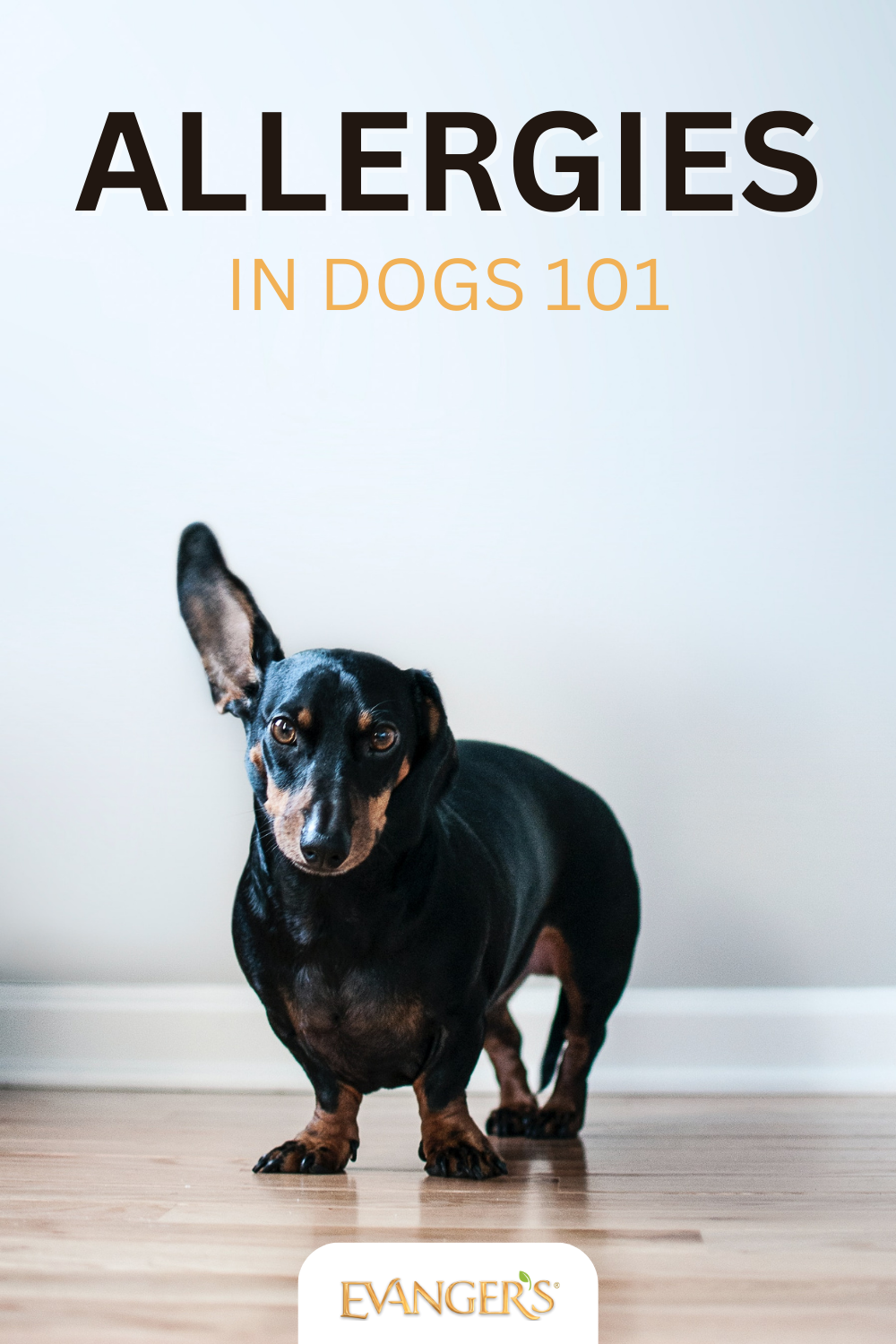Allergies in Dogs 101

by Ian Germann
Just like in humans, dogs can develop allergies to various allergens in their environment or diet, which can cause discomfort and affect their overall well-being. In this article, we’ll delve into the causes, symptoms and treatment options for allergies in dogs, helping you better understand and manage this condition in your beloved pet.
Causes of Allergies
Allergies in dogs can be triggered by a wide range of allergens. Some of the common causes of allergies in dogs include:
Environmental Allergens: These include pollen from trees, grasses and weeds, as well as dust mites, mold spores and dander from other animals.
Food Allergens: Dogs can develop allergies to certain ingredients in their food, such as beef, chicken, grains and dairy products.
Flea Allergy Dermatitis: Some dogs may be hypersensitive to flea saliva, with a single flea bite potentially causing an allergic reaction.
Contact Allergens: Substances that come into direct contact with a dog’s skin such as certain shampoos, grooming products or household chemicals can lead to dogs developing allergies for said products.
Symptoms of Allergies
The symptoms of allergies in dogs can vary depending on the type of allergy and severity of the reaction. Common allergy symptoms in dogs include:
Itching and Scratching: Dogs with allergies often exhibit excessive itching and scratching, particularly around the face, ears, paws and belly. This can lead to redness, inflammation and even open sores on the skin.
Sneezing and Runny Nose: Similar to humans with hay fever, dogs with environmental allergies may exhibit symptoms such as sneezing, a runny nose and watery eyes.
Digestive Issues: Food allergies in dogs can cause digestive issues such as diarrhea, vomiting and excessive gas.
Ear Infections: Allergies can lead to recurring ear infections in dogs, characterized by redness, swelling and discharge from the ears.
Skin Changes: Dogs with allergies may develop skin changes such as rashes, hives or hot spots (red, moist, and irritated areas on the skin).
Treatment Options for Allergies
Treatment options for dogs with allergies generally fall into three categories:
Medications: There are several types of medications that can be used to manage allergy symptoms in dogs. These include the likes of antihistamines, steroids and immunosuppressives.
Immunotherapy: This involves desensitizing the dog’s immune system to the allergens through a series of injections or oral drops containing small amounts of the allergens. Over time, this can help the dog build up tolerance to the allergens and reduce the severity of their allergic reactions. Immunotherapy is typically used for dogs with severe allergies that don’t respond well to other treatment options.
Environmental Management/Avoidance: This involves reducing or eliminating the dog’s exposure to the allergens that trigger their symptoms. For example, if the dog is allergic to pollen, keeping them indoors during peak pollen seasons, using air purifiers, and frequent cleaning can help reduce their exposure to pollen. If the dog is allergic to dust mites, washing their bedding and vacuuming the home regularly can help.
This also extends to possible allergens that may be in their food. For dogs with allergies, Evanger’s Complements line of canned dog and cat food come with extremely limited ingredient recipes in Quail, Rabbit, Beef, Chicken and more! This is a great topper for your pup’s meal, and Evanger’s Meat Lover’s Medley Grain-Free Kibble is the perfect base for pups with sensitive stomachs.
Recommended Posts

100 Amazing Female Dog Names
August 18, 2023

How to Make a Shelter Dog Birthday Cake!
August 10, 2023

Cat Food Myths: Does Canned Food Cause Dental Disease?
June 29, 2023


